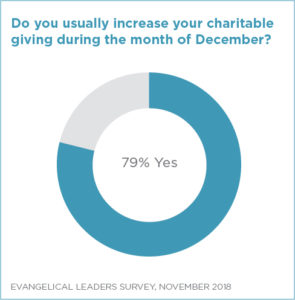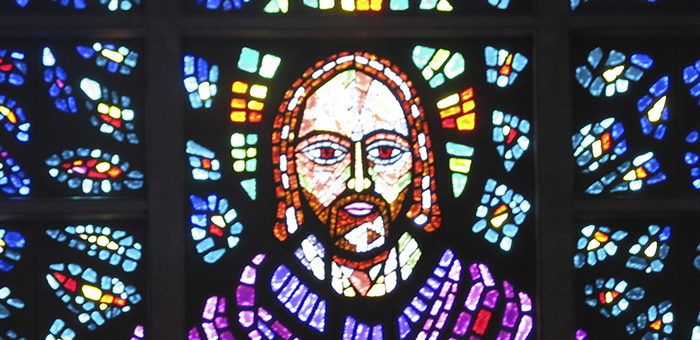
Nearly 8 in 10 American evangelical leaders increase their giving in the month of December, according to the November Evangelical Leaders Survey. They are not alone. Nonprofit Source reports that 30 percent of annual giving occurs in December.
 “Giving trends are interesting to watch, particularly as tax codes come and go,” said Leith Anderson, president of the National Association of Evangelicals. “Evangelical leaders, like many Americans, want to be generous, and December is a good time to give.”
“Giving trends are interesting to watch, particularly as tax codes come and go,” said Leith Anderson, president of the National Association of Evangelicals. “Evangelical leaders, like many Americans, want to be generous, and December is a good time to give.”
Dorothy Smith, national secretary for women’s ministries for The Salvation Army, said, “Many charitable groups (including mine) request donations during December as it is traditionally a time for giving and service to people.”
Many evangelical leaders are like Rich Stearns, president emeritus of World Vision U.S., who noted, “We have always done the lion’s share of our tithing at one time toward the end of the year.”
Others may slightly increase giving at the end of the year to round out their year’s giving, or not increase their giving in December at all.
“Our pattern, habit and commitment is ‘consistent and persistent’ giving. We strive for our giving to be ‘our first fruits,’” said Alan Cureton, president of University of Northwestern – St. Paul. In the NAE survey, many leaders echoed the concept of “first fruits” and giving as the first and top priority.
None of the leaders commented on the changes to charitable deductions in the 2017 tax bill, which doubles the standard deduction from $6,000 to $12,000 for individuals and from $12,000 to $24,000 for couples, even though charitable giving experts predict it will reduce the share of taxpayers who itemize charitable giving and other deductions from 30 percent to 5 percent.
Anderson said, “Most people give because they want to give, but the charitable tax deduction can enable donors to give more. We hope the loss of tax benefits doesn’t significantly impact giving this year or in coming years.”
The Evangelical Leaders Survey is a monthly poll of the Board of Directors of the National Association of Evangelicals. They include the CEOs of denominations and representatives of a broad array of evangelical organizations including missions, universities, publishers and churches.



 View All Surveys
View All Surveys 

















